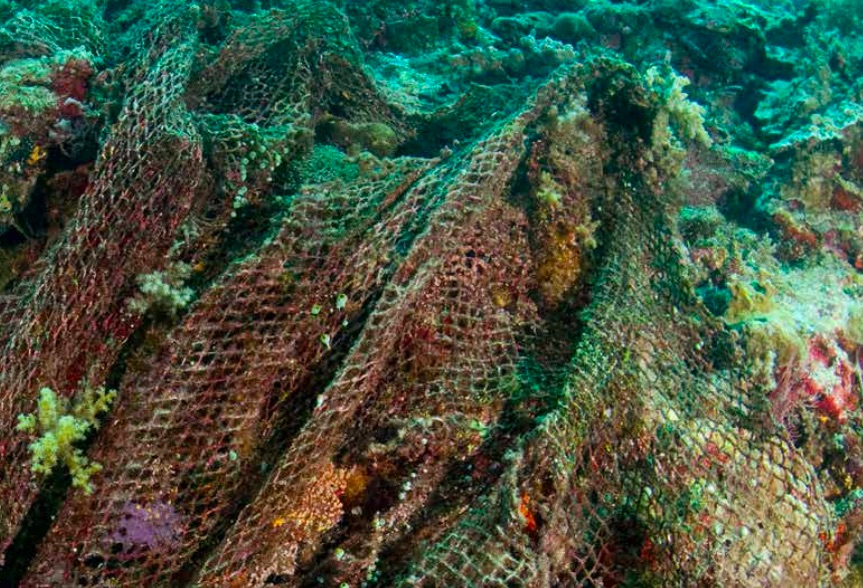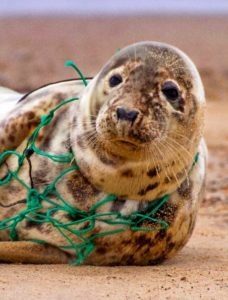Ghost gear is central in the fight against plastic pollution says WWF

So-called ‘ghost gear’, fishing equipment which is lost in the sea, can continue killing marine life for decades or even centuries after it first enters the ocean, making it the most deadly form of marine plastic debris, says a new report by the World Wildlife Fund.
The organisation is calling on governments to develop a legally binding global plastic pollution treaty that addresses this fundamental threat to marine wildlife.
Abandoned fishing gear is the deadliest form of plastic debris for marine life and has already driven the vaquita porpoise and other marine mammals to the brink of extinction, yet even as this crisis continues to intensify, little attention is being paid to it by governments or industry, the WWF says.
 The report, details how ghost gear is responsible for harming 66 per cent of marine mammal species, half of seabird species and all species of sea turtles, often subjecting them to a slow and painful death. The report highlights that ghost gear also damages vital marine habitats such as coral reefs and mangroves, and threatens the food sources and livelihoods of coastal communities and fishers.
The report, details how ghost gear is responsible for harming 66 per cent of marine mammal species, half of seabird species and all species of sea turtles, often subjecting them to a slow and painful death. The report highlights that ghost gear also damages vital marine habitats such as coral reefs and mangroves, and threatens the food sources and livelihoods of coastal communities and fishers.
The report says:
At least 10 per cent of marine litter is estimated to be made up of fishing waste, which means that between 500,000 and 1 million tons of fishing gear is entering the ocean every year.
The number of species affected by either entanglement or ingestion of plastic debris has doubled since 1997, from 267 to 557 species. 66% of marine mammals, 50% of seabirds, and all 7 species of marine turtles.
5.7 per cent of all fishing nets, 8.6 per cent of traps and pots, and 29 per cent of all fishing lines used globally are lost around the world each year.
Ghost gear can act as a navigation hazard, affecting a vessel’s propulsion and the ability to manoeuvre, causing operational delays, economic loss and, in extreme cases, injuries or even the loss of lives of crew members or ferry passengers.
As well as calling on governments to support the establishment of a new treaty to stop plastic pollution, WWF is encouraging countries around the globe to join the Global Ghost Gear Initiative (GGGI) – a global alliance of fishing industry, private sector, corporates, NGOs, academia and governments focused on solving the problem of lost and abandoned fishing gear worldwide.
“Improving the sustainability and responsibility of the fishing industry will be essential to solving this unseen threat. If we’re going to protect the health of our oceans, fishers must be part of the global effort to combat ghost gear,” says Karen Douthwaite, lead specialist, oceans, World Wildlife Fund. “But this is a global problem that requires coordinated action to solve, and we must have a global binding framework in place. That’s why WWF is calling on governments around the world to create and sign on to a new treaty to combat marine plastic pollution.”
Members of the public are invited to join almost two million others in signing the petition calling governments to take urgent action.










